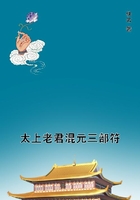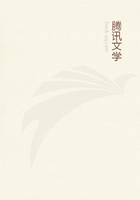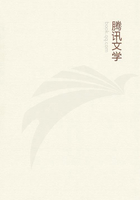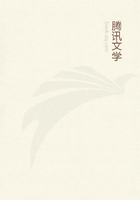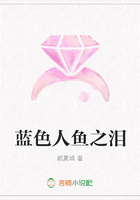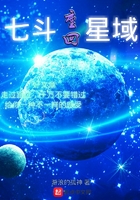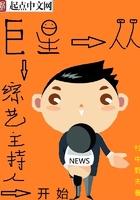^^^^^Explanation--This definition explains sufficiently clearly the essence of love; the definition given by those authors who say that love is "the lover's wish to unite himself to the loved object" expresses a property, but not the essence of love; and, as such authors have not sufficiently discerned love's essence, they have been unable to acquire a true conception of its properties, accordingly their definition is on all hands admitted to be very obscure. It must, however, be noted, that when I say that it is a property of love, that the lover should wish to unite himself to the beloved object, I do not here mean by "wish" consent, or conclusion, or a free decision of the mind (for I have shown such, in II. xlviii., to be fictitious); neither do I mean a desire of being united to the loved object when it is absent, or of continuing in its presence when it is at hand; for love can be conceived without either of these desires; but by "wish" I mean the contentment, which is in the lover, on account of the presence of the beloved object, whereby the pleasure of the lover is strengthened, or at least maintained.
VII. "Hatred" is pain, accompanied by the idea of an external cause.
^^^^^Explanation--These observations are easily grasped after what has been said in the explanation of the preceding definition (cf. also III. xiii. note).
VIII. "Inclination" is pleasure, accompanied by the idea of something which is accidentally a cause of pleasure.
IX. "Aversion" is pain, accompanied by the idea of something which is accidentally the cause of pain (cf. III. xv. note).
X. "Devotion" is love towards one whom we admire.
^^^^^Explanation--Wonder (admiratio) arises (as we have shown, III. lii.) from the novelty of a thing. If, therefore, it happens that the object of our wonder is often conceived by us, we shall cease to wonder at it; thus we see, that the emotion of devotion readily degenerates into simple love.
XI. "Derision" is pleasure arising from our conceiving the presence of a quality, which we despise, in an object which we hate.
^^^^^Explanation--In so far as we despise a thing which we hate, we deny existence thereof (III. lii. note), and to that extent rejoice (III. xx.). But since we assume that man hates that which he derides, it follows that the pleasure in question is not without alloy (cf. III. xlvii. note).
XII. "Hope" is an inconstant pleasure, arising from the idea of something past or future, whereof we to a certain extent doubt the issue.
XIII. "Fear" is an inconstant pain arising from the idea of something past or future, whereof we to a certain extent doubt the issue (cf. III. xviii. note).
^^^^^Explanation--From these definitions it follows, that there is no hope unmingled with fear, and no fear unmingled with hope. For he, who depends on hope and doubts concerning the issue of anything, is assumed to conceive something, which excludes the existence of the said thing in the future; therefore he, to this extent, feels pain (cf. III. xix.); consequently, while dependent on hope, he fears for the issue. Contrariwise he, who fears, in other words doubts, concerning the issue of something which he hates, also conceives something which excludes the existence of the thing in question; to this extent he feels pleasure, and consequently to this extent he hopes that it will turn out as he desires (III. xx.).
XIV. "Confidence" is pleasure arising from the idea of something past or future, wherefrom all cause of doubt has been removed.
XV. "Despair" is pain arising from the idea of something past or future, wherefrom all cause of doubt has been removed.
^^^^^Explanation--Thus confidence springs from hope, and despair from fear, when all cause for doubt as to the issue of an event has been removed: this comes to pass, because man conceives something past or future as present and regards it as such, or else because he conceives other things, which exclude the existence of the causes of his doubt. For, although we can never be absolutely certain of the issue of any particular event (II. xxxi. Cor.), it may nevertheless happen that we feel no doubt concerning it. For we have shown, that to feel no doubt concerning a thing is not the same as to be quite certain of it (II. xlix. note). Thus it may happen that we are affected by the same emotion of pleasure or pain concerning a thing past or future, as concerning the conception of a thing present; this I have already shown in III. xviii., to which, with its note, I refer the reader.
XVI. "Joy" is pleasure accompanied by the idea of something past, which has had an issue beyond our hope.
XVII. "Disappointment" is pain accompanied by the idea of something past, which has had an issue contrary to our hope.
XVIII. "Pity" is pain accompanied by the idea of evil, which has befallen someone else whom we conceive to be like ourselves (cf. III. xxii. note, and III. xxvii. note).
^^^^^Explanation--Between pity and sympathy (misericordia) there seems to be no difference, unless perhaps that the former term is used in reference to a particular action, and the latter in reference to a disposition.
XIX. "Approval" is love towards one who has done good to another.
XX. "Indignation" is hatred towards one who has done evil to another.
^^^^^Explanation--I am aware that these terms are employed in senses somewhat different from those usually assigned. But my purpose is to explain, not the meaning of words, but the nature of things. I therefore make use of such terms, as may convey my meaning without any violent departure from their ordinary signification. One statement of my method will suffice.
As for the cause of the above-named emotions see III. xxvii. Cor. i., and III. xxii. note.
XXI. "Partiality" is thinking too highly of anyone because of the love we bear him.

